Related Research Articles

John Fiske was an American philosopher and historian. He was heavily influenced by Herbert Spencer and applied Spencer's concepts of evolution to his own writings on linguistics, philosophy, religion, and history.

John Andrews Murrell, the "Great Western Land Pirate", was a 19th-century bandit and criminal operating along the Natchez Trace and Mississippi River, in the southern United States. He was also known as John A. Murrell, and his surname was commonly spelled as Murel and Murrel. His exploits were widely known, and he became a legendary figure in fiction, film and television in the 20th century.

The Natchez Trace, also known as the Old Natchez Trace, is a historic forest trail within the United States which extends roughly 440 miles (710 km) from Nashville, Tennessee, to Natchez, Mississippi, linking the Cumberland, Tennessee, and Mississippi rivers.

Winthrop Sargent was a United States patriot, politician, and writer; and a member of the Federalist party.

Andrew Jackson Donelson was an American diplomat and politician. He served in various positions as a Democrat and was the Know Nothing nominee for US vice president in 1856.
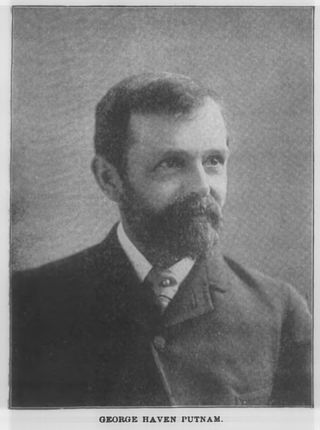
George Haven Putnam A.M., Litt.D. was an American publisher, soldier, and writer. He was the president of G. P. Putnam's Sons for its first 52 years, from 1872.
Robert Huntington Adams was an American lawyer and politician from the state of Mississippi. He was briefly a member of the United States Senate, suddenly dying six months after his election to that body.

Alvan Cullem Gillem was a general in the Union Army during the American Civil War. Although Southern-born, he remained loyal to the Federal government and fought in several battles in the Western Theater before commanding occupation troops in Mississippi and Arkansas during Reconstruction. He later played a prominent role in the Modoc War in 1873.
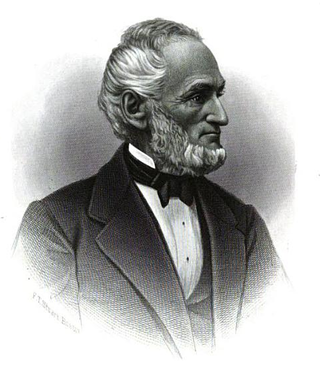
Amasa Walker was an American economist and United States Representative. He was the father of Francis Amasa Walker.

Zealous Bates Tower was an American soldier and civil engineer who served as a general in the Union Army during the American Civil War. He was most noted for constructing the solid defenses of Federal-occupied Nashville, Tennessee, which proved to withstand repeated attacks by the Confederates.

Joseph Farmer Knipe was a brigadier general in the Union Army during the American Civil War. His troops won a decisive victory in late 1864 that helped clear Tennessee of Confederates during the Franklin-Nashville Campaign.

Arnold Elzey Jones Jr., known for much of his life simply as Arnold Elzey, was a soldier in both the United States Army and the Confederate Army, serving as a major general in the American Civil War. At First Manassas, he became one of the few officers ever to receive an on-the-field promotion to general by President Jefferson Davis. He commanded a brigade in Stonewall Jackson's Valley Campaign, and was badly wounded at Gaines Mill, ending his active field career.
Jacob Gartner Lauman was an American businessman from Iowa and a controversial general in the Union Army during the American Civil War.
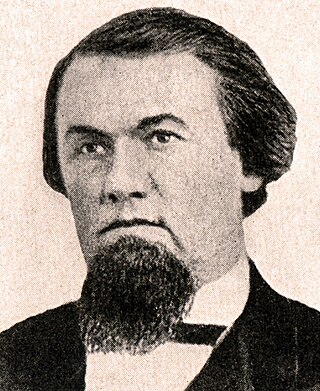
William Felix Brantley was an American lawyer and Confederate combatant. He served as a Confederate general in the American Civil War, mainly in the Western Theater during the conflict.
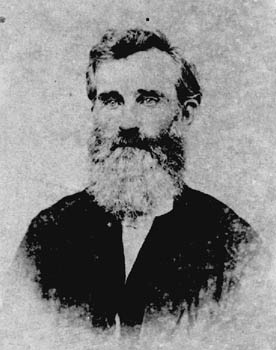
John Dennis Phelan was an American editor, politician and jurist. He served as Speaker of the Alabama House of Representatives.
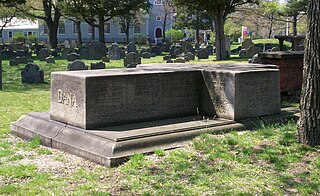
Edmund Trowbridge Dana Jr. was an American lawyer and author.

Frederick William Ricord was a noted American author.
John Putnam Batchelder was an American surgeon and anatomist.

Jeannette H. Walworth was an American novelist and journalist. Born in Philadelphia, in 1837, she removed to Natchez, Mississippi, while a child, with her father, Charles Julius Hadermann, a German baron, who became the president of Jefferson College. On his death, the family removed to Louisiana. When she was sixteen years old, Walworth became a governess. In 1873, having married Maj. Douglas Walworth, of Natchez, she accompanied him to his plantation in southern Arkansas, and then to Memphis, Tennessee, before finally removing to New York City. In addition to contributions to the periodical press, the Continent, The Commercial Appeal, and other magazines, she published several novels. Walworth died in 1918.
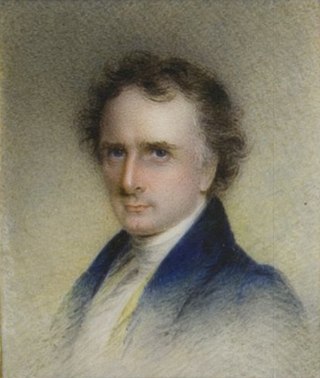
James Rush (1786–1869) was an American physician and writer.
References
- "Col. A. W. Putnam" . The Natchez Bulletin. Natchez, Mississippi. February 5, 1869. p. 1. Retrieved November 16, 2017– via Newspapers.com.
- This article incorporates text from a publication now in the public domain : Fiske, John (1900). . In Wilson, J. G.; Fiske, J. (eds.). Appletons' Cyclopædia of American Biography . New York: D. Appleton. p. 142.